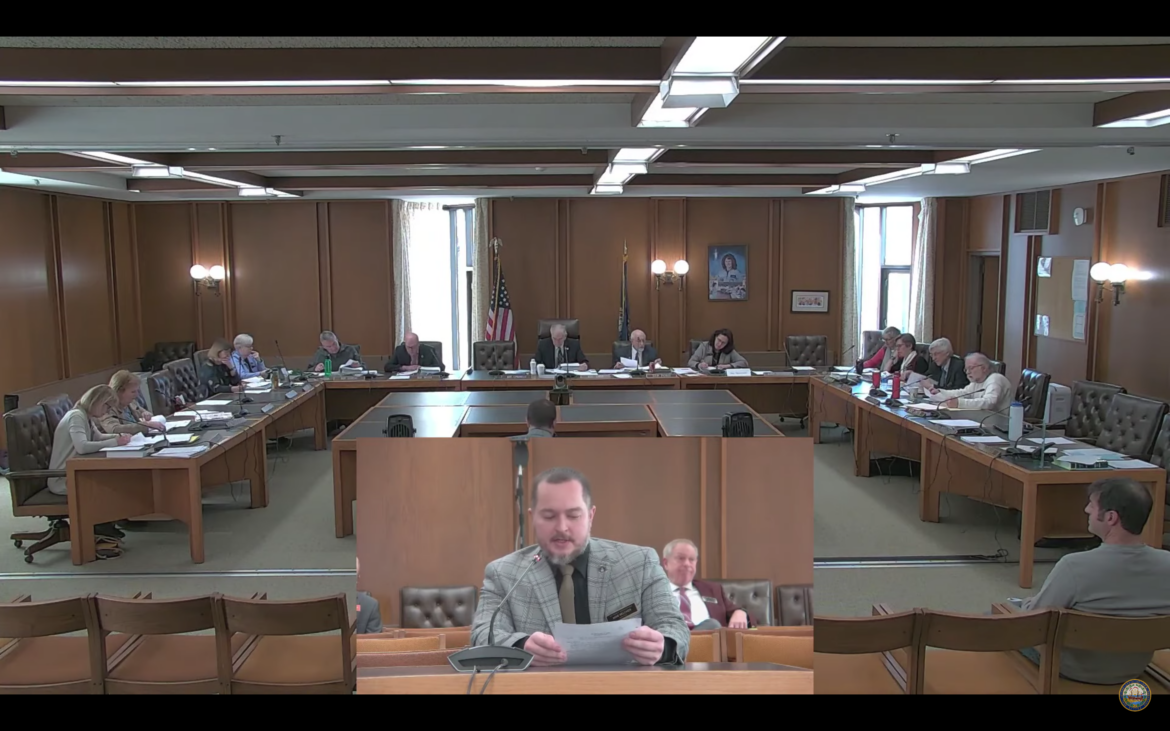By GARRY RAYNO, InDepthNH.org
CONCORD — Several bills introduced this session would allow students to receive graduation credits for attending religious classes outside a public school.
Both House Bills 382 and 634 would allow students to do some of what is already in New Hampshire law.
Both bills would authorize school boards to allow students release time for religious instruction at an off-school site but would also allow that instruction to count as a credit needed to graduate, which is not in law.
The two bills were scheduled for public hearings Monday before the House Education Committee, but HB 382 sponsored by Rep. Matthew Santonastaso, R-Jaffrey, had a public hearing last week, and the sponsor of HB 634, Rep. Jason Gerhard, R-Northfield, did not appear to speak on his bill.
Rep. Matthew Simon, R-Littleton, did speak in favor of the bill, noting that much of what the bill proposes is already allowed, allowing release time for off-sight religious instruction, but with no taxpayer dollars for transportation costs.
He noted recent U.S. Supreme Court rulings concerning state dollars and religious schools allow for the free expression of religion, which would appear to permit a school district to accept a religious course to satisfy credits needed to graduate.
But committee member Rep. Stephen Woodcock, D-Center Conway, noted the bill as written would give a student credit for just sitting there with no other requirements.
Simon said the issue of religion in schools gets very blurry and asked committee members if they would want the state determining what should be in religious instruction in order to receive credit.
The committee chair Rep. Rick Ladd, R-Haverhill, reviewed what is needed for a school district to approve credit from another source and noted much more work needs to be done to clarify the issue in the bill.
No one other than Simon testified on the bill.
However, Nikolas Nartowicz, State Policy Counsel for Americans United for the Separation of Church and State filed written testimony in opposition to both bills, saying they raise serious constitutional concerns.
“New Hampshire already has a law in place to allow such programs. HB 382 and HB 634, however, would do far more than accommodate religious practice,” Nartowicz writes. “They would promote religious instruction by awarding academic credit for religious classes.”
He noted the bills contain no academic safeguards to determine the credit is warranted with attendance the only requirement.
“As a result, students could receive public school credit for attending a class that is purely devotional or only requires students to memorize Bible verses,” he notes. “The First Amendment to the Constitution prohibits teaching such classes in public schools, so surely it would prohibit awarding public school credit for lessons taught at a religious school.”
Nartowicz also notes the bills could be used to pressure other students to attend similar religious courses and students of minority faiths without institutions to offer similar courses and non-religious students could feel ostracized by their classmates and teachers.
“Freedom of religion means that parents—not school officials or state legislatures—have the right to direct their children’s religious education and should be able to entrust that their children will feel pressured to receive religious instruction while attending our public schools,” Nartowicz said. “It also means that all students should feel welcome, not just those who follow a particular religion.”
The committee will decide on recommendations on the two bills at a later date.
Garry Rayno may be reached at garry.rayno@yahoo.com.





